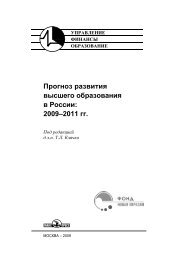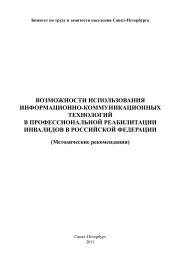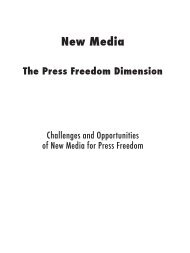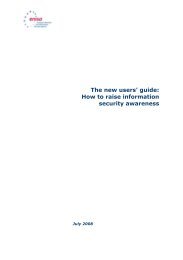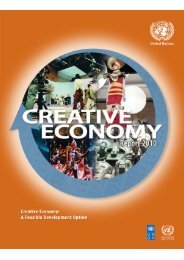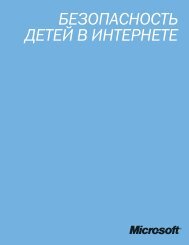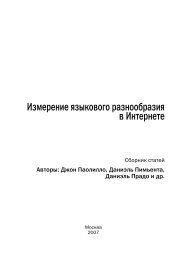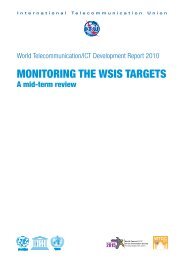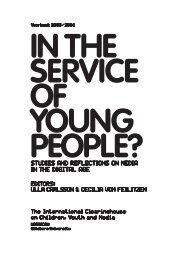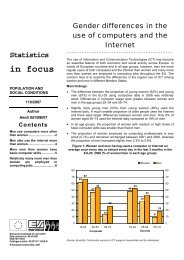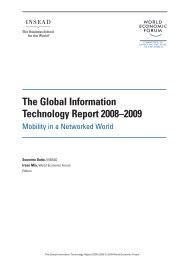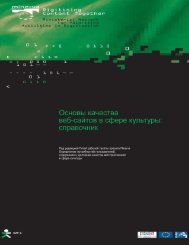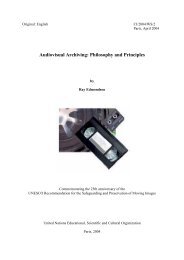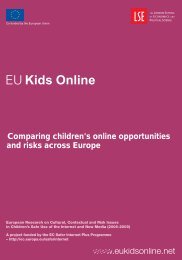Model curricula for journalism education for developing countries ...
Model curricula for journalism education for developing countries ...
Model curricula for journalism education for developing countries ...
You also want an ePaper? Increase the reach of your titles
YUMPU automatically turns print PDFs into web optimized ePapers that Google loves.
131<br />
Grading and assessment protocols<br />
Weekly written seminar assignments (20%). Students should be asked to prepare<br />
short written reports on the seminar topics, both as a basis <strong>for</strong> discussion and <strong>for</strong><br />
grading purposes.<br />
Mid-term essay (30%). Topic at the discretion of teacher, but should be structured<br />
around material covered up to Week 7 of the course.<br />
Final exam (50%).<br />
Contributed by Robert Brand, Pearson Chair of Economics Journalism, School of<br />
Journalism and Media Studies, Rhodes University, South Africa.<br />
Journalism Ethics<br />
Level of course: Second year in bachelor’s degree<br />
Course description<br />
Journalism ethics need not be simply another theoretical discipline. It can be as<br />
challenging, creative and experimental as any other practical class. We propose the<br />
creation of an Ethics Lab, a real or virtual space where students recreate and face<br />
ethical dilemmas similar to those found in newsrooms. The main objective of this<br />
course in applied ethics is to develop the student’s abilities to identify journalistic<br />
ethical issues through the examination and evaluation of local, national and<br />
international case studies. The course is based not on rights and wrongs, but on<br />
critical thinking and supervised decision making. It will also pay attention to global<br />
<strong>journalism</strong> ethics as an extension of <strong>journalism</strong> ethics. We should emphasize the<br />
ethical aspects of <strong>journalism</strong> practice both within and outside the national borders<br />
and prepare students to be critical of their own and other <strong>countries</strong>’ <strong>journalism</strong><br />
practices.<br />
Mode: A combination of lectures and seminars.<br />
Pedagogical approach or method<br />
Students will develop an ability to think critically and practice <strong>journalism</strong> ethics. For<br />
that purpose we develop skills in comprehension, analysis, synthesis, and evaluation<br />
of ethical dilemmas in micro and macro levels of discussion. For some cases,<br />
students will be asked to role-play. We will also explore the diversity of cultural<br />
approaches and definitions <strong>for</strong> <strong>journalism</strong> ethics, society and individual journalists’<br />
responsibilities in different societies. We recommend specific class readings,<br />
writing term papers, discussing local, national and international case studies, film



